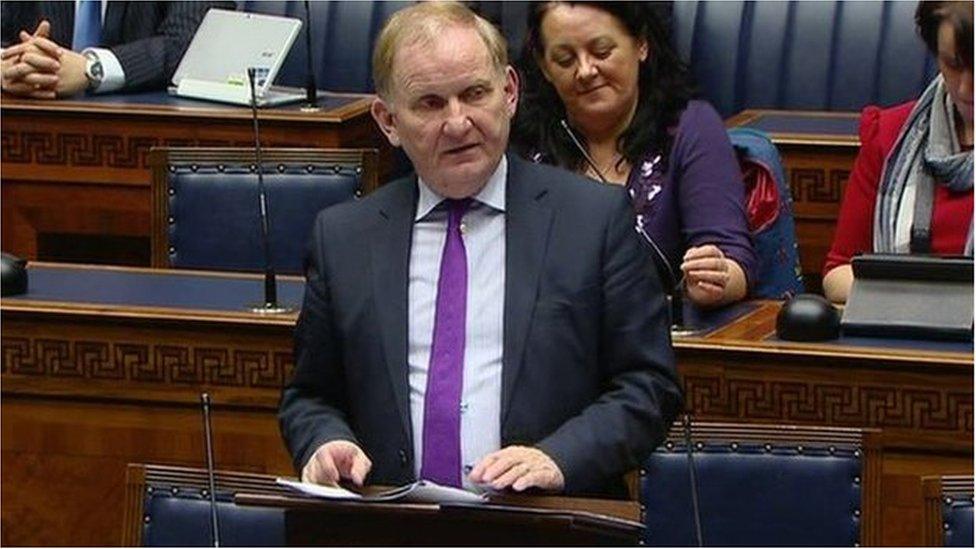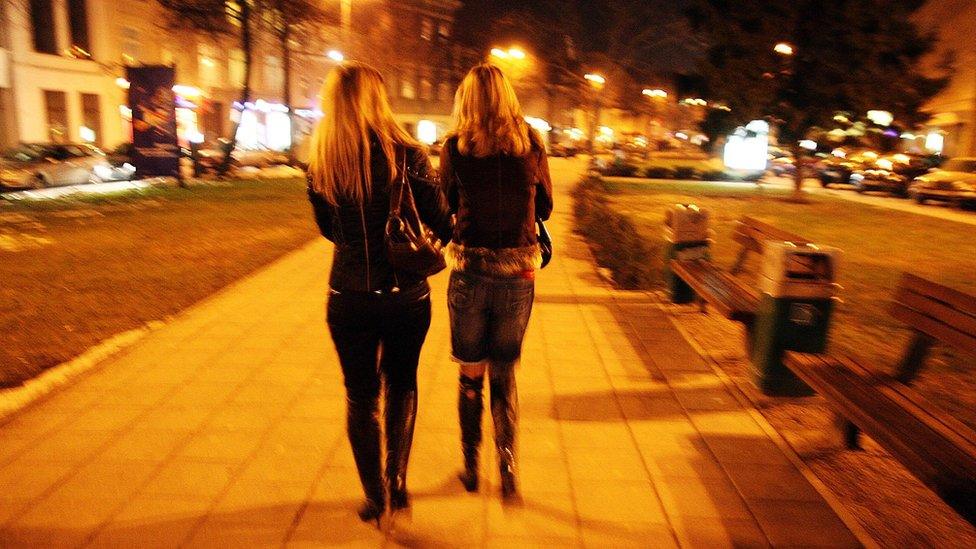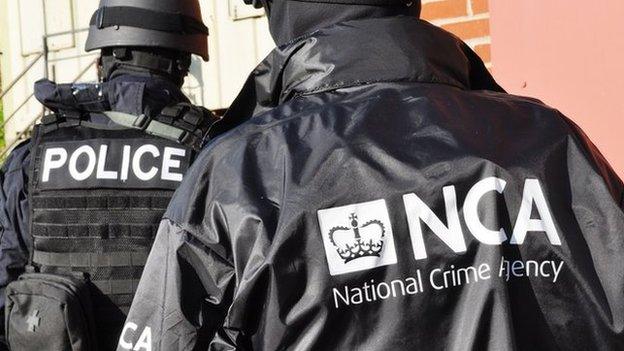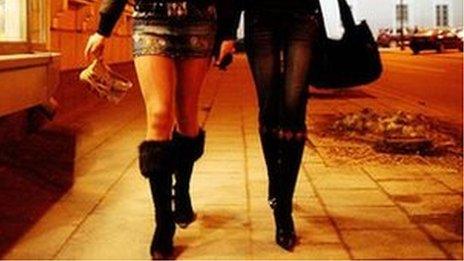Sex work law change 'caused spike in demand'
- Published

The report also stated there has been a decrease in the number of on-street sex workers
Publicity around a change to Northern Ireland's prostitution laws caused a spike in business, a new report has claimed.
Academics carried out a three-year review of the impact of the Human Trafficking and Exploitation Act 2015.
The law introduced the "Nordic model", which criminalised paying for sexual services in Northern Ireland.
Sex workers, consulted for the review, said media discussion at the time publicised the idea of prostitution.
The report said sex workers noted "a surge in business in the run-up to the legislation and its immediate aftermath and it was suggested that the public debate around Article 64A publicised prostitution to those who had never previously considered it".
Article 64A in the 2015 act related to paying for sex.
The Northern Ireland Assembly passed the Human Trafficking and Exploitation Bill in December 2014. The private member's bill was brought before the house by the Democratic Unionist Party (DUP) peer Lord Morrow.

DUP peer Lord Morrow criticised the methodology of the report
He criticised the methodology of the report and claimed on Good Morning Ulster that those who compiled it had a "clear track record on this issue in favour of decriminalisation".
Lord Morrow added that he was "disappointed in some regard with how the legislation has been implemented" but that it had led to arrests and convictions "so the PSNI and PPS (Public Prosecution Service) can build on this in the future".
One of the academics involved in the report, Dr Caoimhe Ní Dhónaill, rejected Lord Morrow's criticism, tweeting that his claims were "unfounded and untrue" and that they "simply reported what was found".
Allow X content?
This article contains content provided by X. We ask for your permission before anything is loaded, as they may be using cookies and other technologies. You may want to read X’s cookie policy, external and privacy policy, external before accepting. To view this content choose ‘accept and continue’.
Earlier, she told Good Morning Ulster that "the demand for sex work is as strong as ever".
"Now because clients have been criminalised, the clients are putting a lot more pressure on sex workers to put themselves in more risky situations and to move into sexual practices that they wouldn't have done before," she said.
Online adverts for sex
The report, based on research which examined a period between June 2015 and December 2018, also found an increase in online advertising for prostitution.
Looking at a total of 173,460 advertisements, there was a 5% increase in the total number over that period.
The report said that worked out at about 308 sex workers advertising each day.
The estimated number of sex workers in Northern Ireland increased from 3,351 up to 3,973.

The number of sex workers in Northern Ireland increased from 3,351 up to 3,973
The report also examined issues around the safety of sex workers and human trafficking for exploitation.
On the basis of the findings, it concluded there was "no evidence that the offence of purchasing sexual services has produced a downward pressure on the demand for, or supply of, sexual services".
Responding to the report, the Sex Workers Alliance Ireland (SWAI) said it showed current legislation is "not fit for purpose".
"Sex workers in Ireland tend to work both jurisdictions so a lot of the findings in this report will be applicable to the Republic of Ireland," said Kate McGrew, current sex worker and spokesperson for the SWAI.
"If the purpose of the law was to decrease demand it has failed.
"If the purpose of the law was to help sex workers it has failed."

The report said the legislation had little effect on the supply or demand for sexual services
The report said the "tailing off" in demand, which had been expected, has not happened.
Rather, the legislation "has had little effect on the supply or demand for sexual services".
On the issue of safety, the report states serious crimes against sex workers are "comparatively rare".
However, information gathered from a website used by sex workers to report instances of abuse showed increases in the number of reports it had received of assaults, sexual assaults, and threatening behaviour.
The report also stated there has been a decrease in the number of on-street sex workers, falling from about 20 operating in Northern Ireland in 2014, down to less than 10 currently.
In 2014, ahead of the law change, baseline research was carried out by the Department of Justice to give a point of comparison.
A requirement was built into it at the time for a review to be carried out after three years.
"The evidence from Northern Ireland based on a comparison of the before and after data suggests very strongly that Article 64A has had minimal to no effect on the demand for prostitution, the number of active sex workers in the jurisdiction and on levels of human trafficking for sexual exploitation," the report concluded.
- Published16 February 2015

- Published5 November 2015

- Published27 October 2017

- Published21 October 2014
